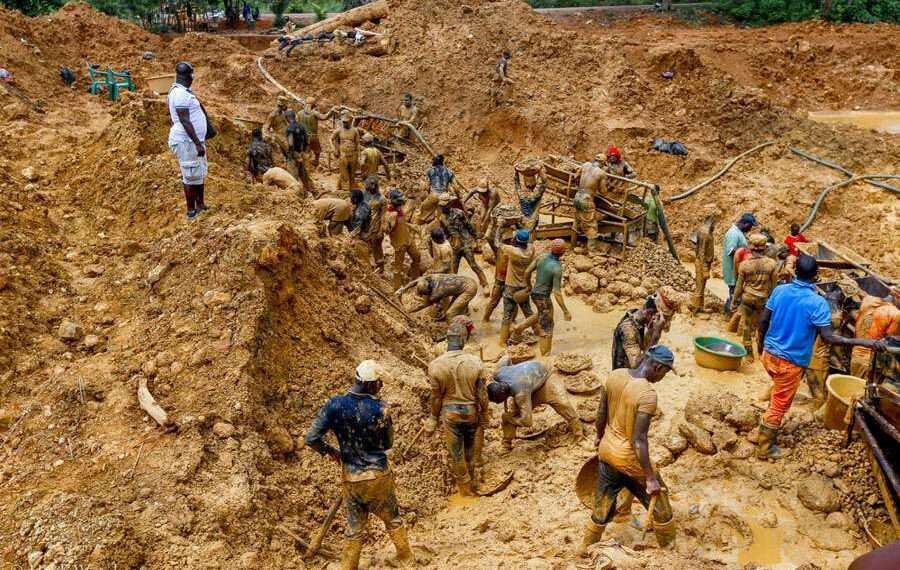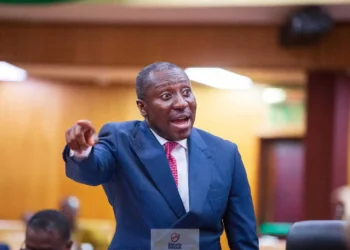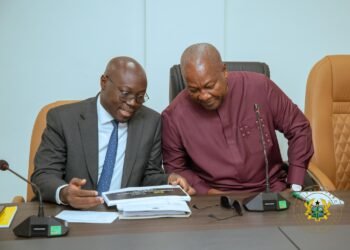The world is changing, and not just for the progress and successes chalked as a result of industrialization and technological advancement.
Even more pronounced is the adverse impact of such developmental change economies globally are witnessing.
The consistent and progressive change and perhaps damage to the environment and climate by way of carbon emissions and footprints have threatened, and in some cases, driven aquatic and some animals into extinction, while more progressively, issuing warnings to humans on the dangers of such prolonged hostility towards it.
The evidence is irrefutable and unless governments act immediately to reduce greenhouse gas emissions, they will not be able to stave off the worst consequences of climate change.
The world is more than 1.2°C warmer than pre-industrial times and every fraction of a degree counts. Research shows that with 2°C of global warming, there’s bound to be intense droughts and more devastating floods, more wildfires and more storms – which countries globally are already experiencing.
As leaders across the world scuttle and make frantic efforts to tackle the impact of emissions on the environment, questions have been raised on the relevance of meetings and conferences such as the Conference of Parties (COP) 28th annual United Nations (UN) climate meeting where governments are discussing how to limit and prepare for future climate change.
COP28 which is ongoing in the United Arab Emirates has its own controversies on the choice of country to host for this year and rightly so. For one thing, the UAE is one of the world’s top 10 oil-producing nations.
Also, it has appointed the chief executive of the state-owned oil company, Sultan al-Jaber, President of the COP28 talks.
Oil, like gas and coal, is a fossil fuel and these are the main causes of climate change because they release planet-warming greenhouse gases like carbon dioxide when burned for energy, making climate activists question the real motive behind such move.
Among the tall list of governments who have graced this year’s conference, Ghana is conspicuously present as always and making a case for climate financing among others to forestall the damning impact of climate change on countries, particularly developing countries who bear the greater brunt of the West’s emissions.
Government’s ‘pro-climate change’ position exposed
However, back home, member of parliament for Builsa South, Dr Clement Apaak, has called out government’s contradictory stance on the climate change, especially with its struggle in resolving illegal mining – a menace it has over the years, been touted as being spearheaded by government officials.
Dr Apaak commenting on government’s participation in the COP28, revealed that Ghana’s forest reserves have seen the worst destruction, and water bodies the worst pollution, under the Akufo-Addo/Bawumia NPP government – making government “pro-climate change”.
He indicated that NPP government and ruling party officials are “beneficiaries of illegal mining, the main cause of the destruction of our natural environment, forests and rivers”.
“Killing our rivers and decimating our forests via illegal mining is contributing to worsening climatic conditions. The Akufo Addo/Bawumia NPP gov’t by its actions and inactions is pro-climate change and ought not to have been allowed to participate in COP28.”
Dr Clement Apaak
Coupled with this, the Member of Parliament for Tamale South, Haruna Iddrisu, wants Parliament to probe allegations of the government registering over 600 delegates for this year’s Conference of Parties (COP28).
Data released by the United Nations Framework Convention on Climate Change suggests that Ghana’s delegation to COP28 in Dubai has increased to 618 from the delegation of 350 last year.
The delegation consists of 95 persons on the official parties list and an additional 523 on the party overflow list.
Speaking on the floor of Parliament on Monday, December 4, 2023, the former Minority Leader bemoaned the impact of the number of attendees at COP28 on the state coffers.
Indeed, the greatest nemesis and blot on the books of government most certainly has to do with its inability to put an end to illegal mining. The extent of devastation caused by such brazen act has amplified calls for more to be done.
Although government claims to be working hard in fighting the menace, its impact is yet to be seen and felt by all.
However. when the delegates of COP28 finally return home, it is the hope that government translates the bloated number of participants and various rhetoric churned out into actual results.
Ghana must first take care of its own.
READ ALSO: Deputy Majority Leader Denies Selling Effutu Forest For Lithium Mining























